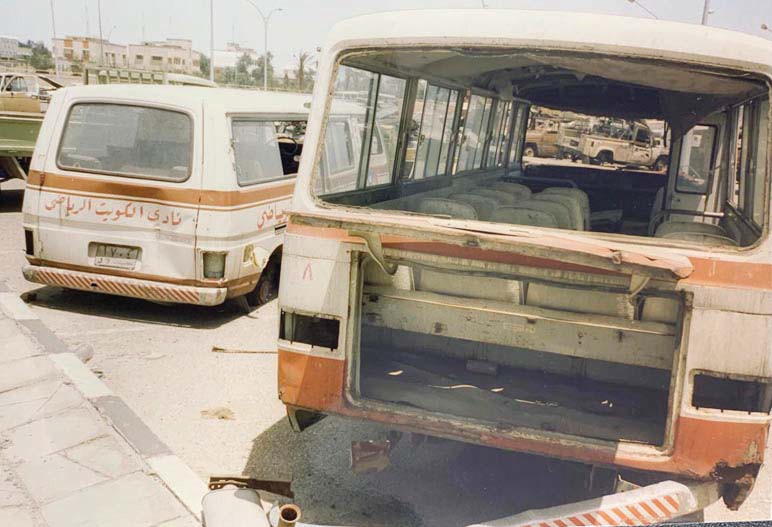02/08/2021
02/08/2021
‘Tragedy left indelible mark on the soul’
KUWAIT CITY, Aug 2: The anniversary of the brutal Iraqi invasion of Kuwait comes this year while a whole generation of Kuwaitis have not witnessed those painful events, but were narrated to them from different sources. This generation of Kuwaitis have mixed feelings about the memory of the brutal Iraqi invasion on their homeland. Between sadness and pain at the beginning of the occupation and destruction, and then the feelings of joy and pride about the liberation story. Speaking to KUNA, Saleha Al-Fadhli, the daughter of one of Kuwait’s righteous martyrs, who was born in 1990, said that the brutal Iraqi invasion caused many tragedies and left an indelible mark on the soul of everyone who lost love ones. Al-Fadhli added that her sources of information about the Iraqi invasion are different, including family stories, school curricula, such as social studies and morning radio programs, in addition to the activities of the Kuwait Martyrs Office, which deals with the affairs of the martyrs’ families. She suggested the production of a “huge” international documentary film, translated into several languages, to tell the world about that important event in the contemporary history of Kuwait. On his part, Abdullah Al-Salloum, who was born in 1990, told KUNA that the one who did not live the events of the brutal Iraqi invasion and saw what happened to the Kuwaiti people could not express his feelings towards this event “as if he saw and lived the events himself.”
Recover
He added that the information he got from various sources made him know the size of the great sacrifices made by the Kuwaiti people to recover their right and liberate Kuwait from “the clutches of a brutal invasion.” Al-Salloum expressed his pride in the sacrifices of the martyrs who died in that national epic and set the most wonderful examples of national unity and solidarity against the occupier until the last day of the occupation. Meanwhile, Omar Al-Otaibi, who was born in 1991, told KUNA that most of the historical information he has on the Iraqi invasion was taken from TV documentaries, pointing to the role of school curricula in introducing the current generation to the reality of what happened in 1990. He added that the historical information that recounted what happened in August 1990 in Kuwait is considered “complete” and informed the current generation of what their fathers, mothers and brothers did in the face of injustice and tyranny. He indicated that his generation, who were not present in that important event, feel proud when reading a story or seeing a movie related to the invasion, recalling the great efforts made by the Kuwaiti leadership at the time, headed by the late Amir Sheikh Jaber Al-Ahmad Al-Sabah, in addition to the brothers in the GCC and Arab countries, and allies from countries around the world who supported the Kuwaiti right.
For his part, Yaqoub Al-Bashir, who was born in 1994, said that he drew his historical information about the brutal invasion and its subsequent effects on Kuwaiti society, from several sources, most notably talk shows and political programs, whether on Kuwait TV or other channels, and specialized books that shed light on events that Kuwait went through during the invasion. Moreover, Abdulaziz Al-Atawi, who was born in 1992, said that there is no doubt that the brutal Iraqi invasion of Kuwait is an important historical event and that every Kuwaiti or resident who lived in Kuwait on that day will never forget, adding that Kuwait’s official channels “spared no effort in conveying historical information about the Iraqi invasion to this generation.” Al-Atawi said that due to the importance of the historical event, the state of Kuwait, after its liberation, was interested in clarifying the truth of what happened to its children of this generation and future generations in its educational curricula and television programs. He explained that the historical information he learned through the school curricula was not “completely suffi- cient,” pointing out that he found more information and details when watching a number of TV documentaries in which people who were eyewitnesses narrated about that important event. By Fawaz Al-Otaibi (KUNA)



